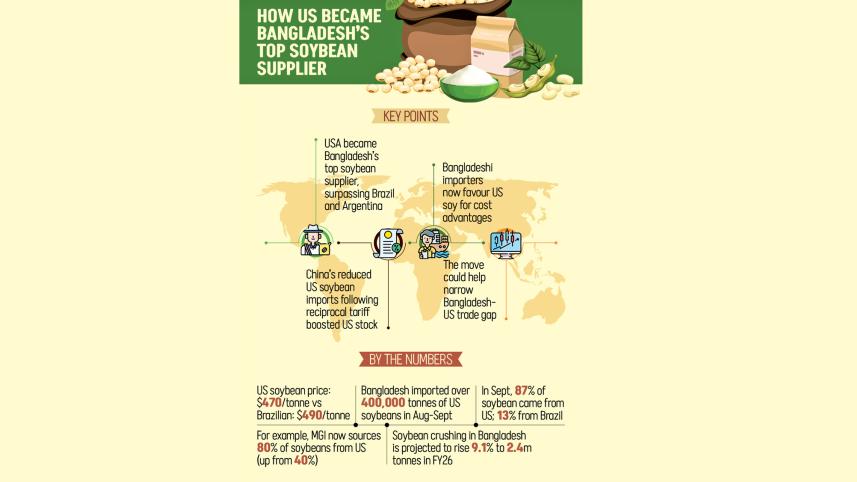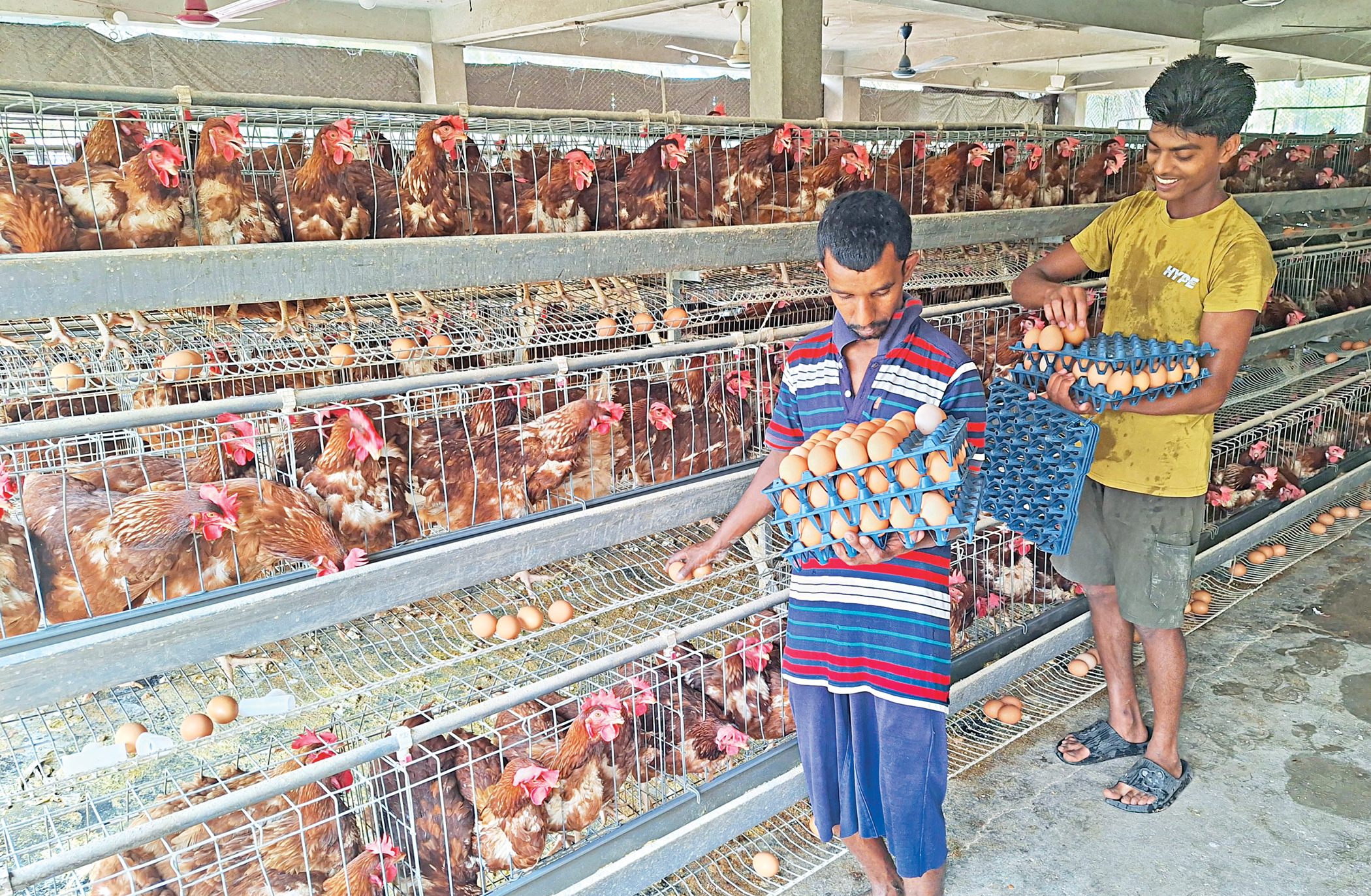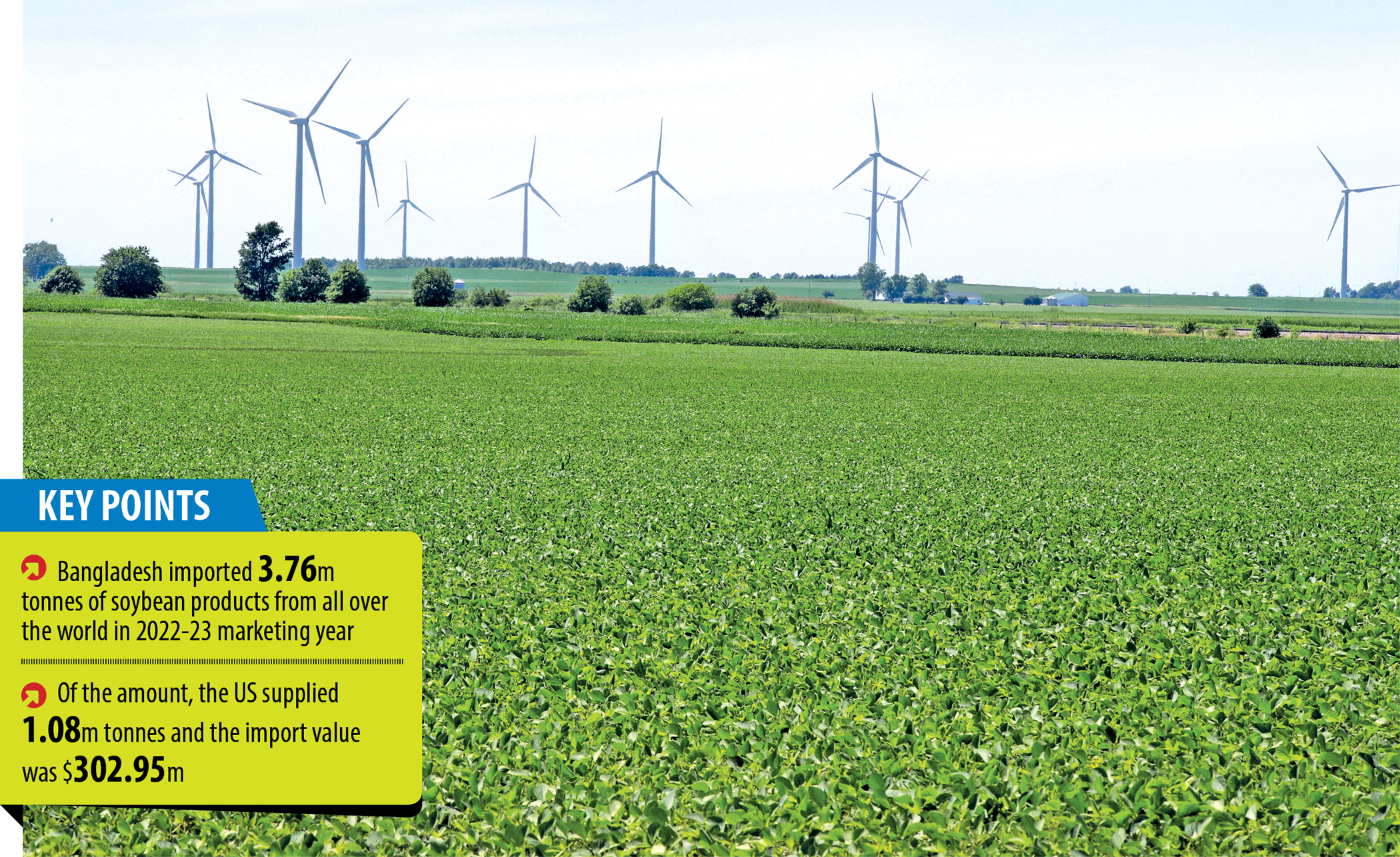Bangladesh cashes in on US soybean glut as China turns away

- Bangladesh boosts imports amid US soybean glut
- China halts purchases after tariff dispute
- Price gap drives shift from Brazil
- US share of Bangladeshi imports surges
Bangladesh is reaping the benefits of a trade war between Washington and Beijing, with local importers snapping up cheap soybeans from the United States after China reduced its purchases drastically.
China, once the biggest buyer of American soy products, has reduced imports following US President Donald Trump's reciprocal tariffs, which strained trade relations between the two economic powers.
Local soybean importers, millers, crushers, and traders say they are taking advantage of the US soybean glut, as China's absence from the US market has left American farmers with excess stock.
Traditionally, Bangladesh sourced soybeans from low-cost Latin American suppliers such as Brazil and Argentina. But recent price hikes there, followed by increased Chinese demand, have made those options less attractive.
China, the world's largest soybean importer, has not booked a single shipment from US farmers this season, Bloomberg reported.
This unusual move has affected the US growers, as they rely heavily on the Chinese market.
In 2024, the United States accounted for about one-fifth of China's soybean imports, worth more than $12 billion, representing more than half the total value of US soybean exports.
Without that market, growers have been left with fewer buyers and weaker prices, according to a Bloomberg report.
Reuters reported that US soybean exports to Bangladesh rose sharply to just over 400,000 tonnes, still only a fraction of China's usual demand.
Amid surging Chinese demand, Brazilian traders have increased their prices, said Md Taslim Shahriar, deputy general manager of Meghna Group of Industries (MGI).
"This came about following China's imposition of a 20 percent retaliatory duty on imports of US soy seeds," he told The Daily Star over the phone.
"Sometimes the price gap is $40 per tonne between Brazilian and US soy seeds. Local importers are enjoying zero-tariff facilities on imports of American soy seeds," he added.
Before the tariff took effect on August 7, MGI sourced 60 percent of its soybeans from Brazil and 40 percent from the US.
"This year, 80 percent of our soy seeds may come from the USA because of the price advantage," Shahriar said.
The quality of US soybean seeds is also "far better" than Brazilian and Argentine varieties, said Amirul Haque, managing director of Delta Agrofood, one of the country's major soybean crushers.
"The price difference is $20-$30 per tonne between US and Brazilian seeds, which in international trade represents a significant margin and competitive edge," he said.
In the current international market, US soybean seeds are selling for around $470 per tonne, compared with $490 for Brazilian seeds, Haque added.
He said the growing focus on US soybeans could help reduce the trade deficit between Bangladesh and the United States.
"This is because the Trump administration wants to narrow the trade deficit between the two countries," said Haque, who took part in the reciprocal tariff negotiations on behalf of the country's private sector.
During those talks, Washington imposed a reduced 20 percent tariff on Bangladeshi goods entering the US, tied to efforts to reduce the trade imbalance.
Trade between the two countries remains heavily in Bangladesh's favour, with exports to the US crossing $8.2 billion a year, while imports from the US total around $2 billion.
Khabibur Rahman, country team lead for Bangladesh at the US Soybean Export Council (USSEC), confirmed the surge in US soybean imports following the reciprocal tariffs. "Over the last two months, soybean imports in Bangladesh have boomed because of the advantageous price."
In August and September, Bangladesh imported 400,000 tonnes of soybean seeds, up from 200,000 tonnes in the previous two months, said Rahman.
In September alone, 114,000 tonnes came from the US, accounting for 87.11 percent of total imports that month. Brazil supplied 16,800 tonnes, or 12.89 percent, he said.
"Even in July, before the tariffs took effect, 45.84 percent of soybeans were imported from the US and 54 percent from Brazil. The picture is now completely reversed," he added.
Bangladesh's soybean crushing is forecast to rise 9.1 percent to 2.4 million tonnes in the 2025-26 marketing year, Rahman said.




 For all latest news, follow The Daily Star's Google News channel.
For all latest news, follow The Daily Star's Google News channel. 

Comments